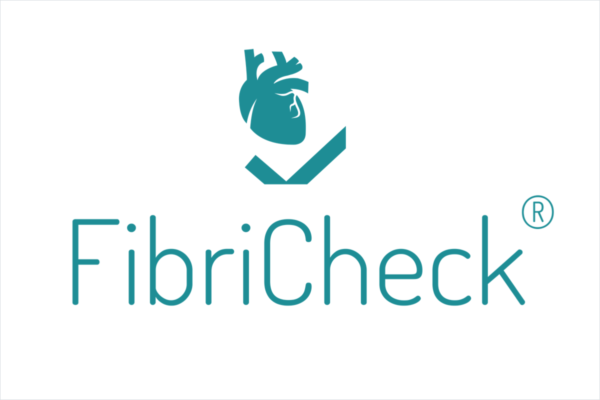
The challenge
Over 1 million people in the UK are diagnosed with atrial fibrillation (AF), while hundreds of thousands go undiagnosed. Undetected and untreated AF is responsible for 25% of all strokes. 75% of these strokes can be prevented by timely detection and intervention. As of 2020, AF is predicted to directly cost the NHS between £1,435m and £2,548m, just from primary admissions. The total direct costs of AF on NHS expenditure will only increase over the next 2 decades. AF associated healthcare costs would be substantially reduced if hospitalisations were minimised or avoided.
The solution
FibriCheck is a compliant, device agnostic digital application that equitably improves access to care. By transforming smartphones/ smartwatches into diagnostic grade medical devices, FibriCheck remotely detects and supports the follow-up of cardiac arrhythmias, like atrial fibrillation. With proven ECG accuracy, FibriCheck is trusted and used by over 2000 physicians for primary and secondary prevention, triaging Holter wait-lists, monitoring symptomatic presentations, medication titration and follow-up post-procedure.
Hardware free, FibriCheck eliminates device turnover and scarcity, allowing providers to define the monitoring duration based on medical need not resources. On-demand self-measurement by patients increases the chances of detection, especially in the early stages when intervention is most cost-effective, but often missed during scheduled appointments owing to AF’s intermittent nature. Measuring is as easy as placing your finger on your smartphone camera for 60 seconds. After which, the app provides real-time analysis, affording peace of mind. Patients and providers take confidence in the results since irregularities verified by medical professionals, controlling service demand. Results are visualised in a summary report to support evidence informed (tele)consultation and decision-making for the next steps in the healthcare journey.
TeleCheck-AF (FibriCheck’s response to COVID) enabled 40 centres across Europe to onboarded in less than 2 months at the start of the pandemic. Centres like Barts and Liverpool were up and running in less than a day, replacing 95% of in-person consultations. Rapid deployment is possible with FibriCheck since flexibly adapted into usual care and transformed pathways. As evidence by alignment to PCN vaccine delivery, post-discharge virtual wards, ICS Hub and Spoke model and digital checks as part of LTC management. In disrupting diagnostic waits, transforming CVD pathways and releasing system capacity, FibriCheck has garnered recognition from medical societies across the globe.
By enabling connected, remote patient monitoring without the need for extra hardware, FibriCheck meets people where they are and empowers at-home self-management. Patients are better engaged in their care, ultimately achieving better outcomes for patients and the NHS.
The issue is that Atrial Fibrillation is not always present during a visit at the cardiologist. Over 40% of patients do not present any symptoms. Suffering a stroke is often the first presented symptom. FibriCheck uses a smartphone or smartwatch to measure the heart rhythm, turning it into an accessible and budget-friendly medical device.
Dr Pieter Vandervoort, Cardiologist at ZOL Genk
The impact
- +500,000 users in 43 countries, +120,000 in the UK since the start of the pandemic.
- Adopted by over 2000 physicians and over +30 NHS organisations, spanning primary care to rehabilitation.
- Recognised in UK clinical guidance for the management of CVD patients in primary care, as well as CVD condition framework pathways.
- 90% ORHCA rating (DTAC ready and standards exceeded DPST).
- Named Best Digital Health Company by the European Society of Cardiology.
- Population health level case-finding of 65,000 people in a week, just by placing a code in the local paper.
- Highly cost effective (cost per QALY <5k) in untargeted case-finding, with expected cost-savings for targeted detection.